6 Simple Steps To Start a Plumber Job in Australia
Have you been looking to win a plumber job in Australia? Learning how to become a plumber can naturally come with numerous key challenges.
Considering this is important if you want to begin offering plumbing and services to the public. Luckily, we’ve outlined some key things you need to know about plumbers’ jobs and becoming a plumber.
Hopefully, this will help you decide whether a plumber career is the right option for you.
After all, the plumbing industry can offer numerous opportunities. However, becoming a plumber may not be everyone’s dream job. This is why it’s crucial to look at the role of a high-quality plumber to find the right option.
What are the Basic Requirements of a Plumber Job?
Without a doubt, working as a plumber is an incredibly rewarding job role. Indeed, professional plumbers in Australia provide a crucial service for many people.
Plumbers have a highly varied role. Some of the main jobs of a professional Australian plumber include helping with:
- drainage systems
- disposal systems
- construction plumbing
- sanitary disposal and management
- appliances and ventilation systems
- pipe installation and maintenance
These are just a few of the potential tasks required of a professional Australian plumber. Of course, each of these systems is highly crucial for the safety of a property. As such, there’s definitely a lot of pressure to get the job right. Still, with an average salary of around $80k and excellent job satisfaction, it’s definitely lucrative.
However, working as a professional plumber can still be highly rewarding with the proper skills, equipment, and training. However, you’ll need to consider some basic requirements for plumbing jobs first to see if this is right for you.
What Qualifications Do I Need to Be a Plumber?
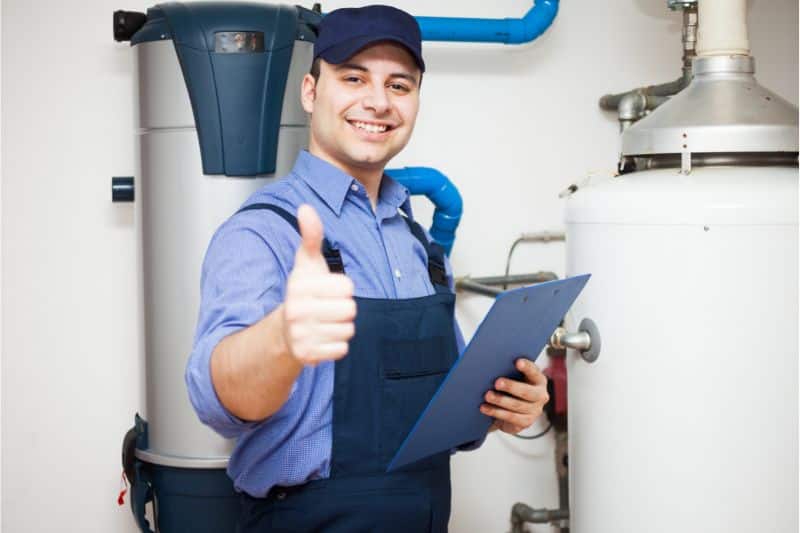
First, we should consider the important skills you’ll need to become a plumber in Australia. Plumbing and services provision is complex. As such, some of the main qualifications you’ll usually need to work as a plumber are:
- Full high school education with good grades in mathematics
- Certificate III in plumbing
- Certificate IV in plumbing
These certificates help provide the necessary skills and knowledge you’ll need to begin working in the plumbing industry.
However, many of the main skills you’ll need for a plumbing career are best obtained through practice. As such, many plumbers seek to begin their careers with an apprenticeship, alongside these qualifications.
Important Skills for a Plumber Career
As a plumber, you will need to hold several key skills to do your job effectively. Of course, a working knowledge of plumbing systems is vital.
For this, you may need to undergo plumbing training courses to become a qualified plumber. In addition, further skills you will need include:
- Excellent people skills and communication
- Good attention to detail
- Physical strength
- Understanding of how different systems work together
- Blueprint reading skills
- Responsibility
- Ability to respond under pressure
- Strong analytical and problem-solving skills
- Good time management
If you hold all of the above skills, working on plumbing systems might be a good option for you.
However, you’ll need to hone the necessary skills first before you apply for qualification to become a licensed plumber.
What Jobs do Plumbers Do?
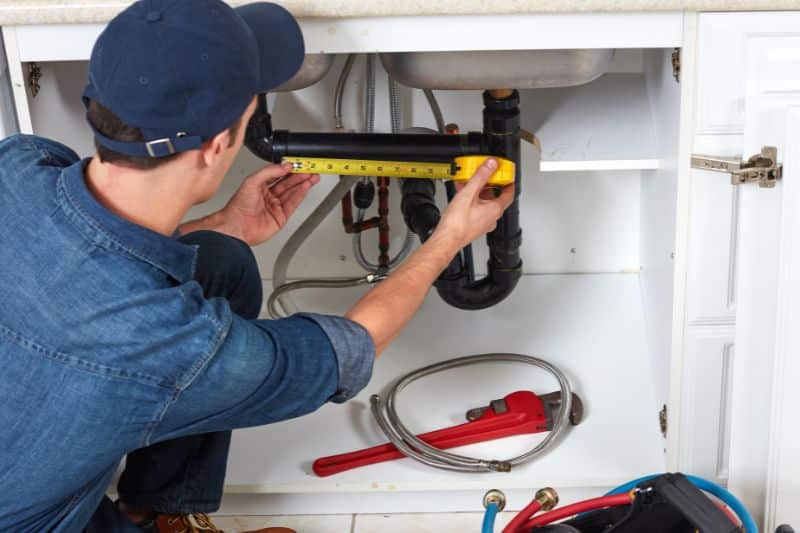
Professional plumbers work on many different jobs and projects. The exact nature will depend on the type of project you are working on.
Still, some of the most common plumbing jobs include:
- Installing new plumbing systems and appliances
- Repairing damaged or worn-out systems
- Upgrading plumbing systems and appliances
- Installing central heating systems in properties
- Cleaning and maintaining drainage systems
Plumbers work on both residential and commercial projects. Some plumbers may also be required for public management systems, such as in sewage works.
How to Become a Plumber: 6 Simple Steps to Start a Plumber Job
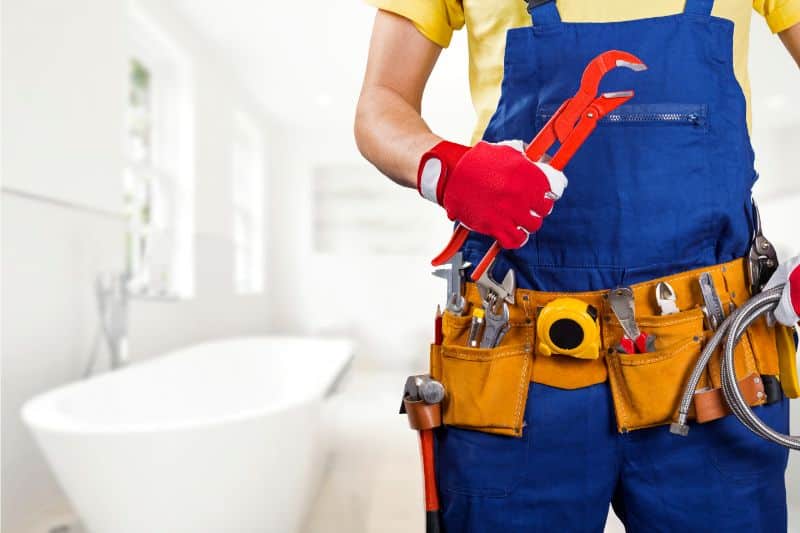
So, you’re confident that you have the necessary knowledge to undertake a plumbing role. But how can you become an Australian plumber? Well, the following six steps may help with this.
Remember: the exact requirements may vary slightly depending on your state. If you have any concerns, reach out to a local representative to find out exactly what you’ll need to begin part-time or full-time plumbing training and employment.
#1 Create Your CV and Covering Letter
One of the first things you should do before starting your training is to create a CV.
Your CV should clearly demonstrate why you would be a good candidate for a plumbing apprenticeship.
As such, you should aim to include any past experience you may have had with mechanical services or systems. Make sure you also demonstrate your current understanding of gas and hot/cold water systems.
You should also clarify how you meet the necessary units of competency for plumbing jobs in Australia; this means showing how your skills meet the requirements of the role.
#2 Obtain a White Card
Before you go any further, getting your white card is advisable. This includes plumbing systems. An Australian white card, as explained by SafeWork, is necessary to work on any construction project.
Even if you aren’t working on manual tasks as part of your business, such as in a management role, this is still necessary.
Obtaining a white card is simple. You will first need to complete the “Prepare to Work Safely in the Construction Industry” training course, code CPCCWHS1001.
This primarily helps cover the necessary safety requirements to work in the construction industry.
The course concludes with a simple safety assessment. Upon passing this test, you will obtain your White Card, enabling you to work on construction projects.
#3 Undertake an Apprenticeship in Plumbing
Now that you hold a white card, you’re ready to learn more about becoming a plumber in Australia. Usually, the best way to do this is through a plumbing apprenticeship.
A plumbing apprenticeship will usually last for around two years.
During this time, you will gain practical, valuable, and hands-on experience with plumbing. Along with your existing skills, this will help you develop the necessary knowledge for the career.
In turn, you’ll be able to complete plumbing jobs to a high standard independently when you begin work as a full-time plumber.
The best way to find a plumbing apprenticeship in Australia is to head to sites such as Seek.com.au.
These hiring platforms often also include listings for apprenticeship roles. As such, it’s a good way to begin looking for a new opportunity with a local plumbing employer.
Be sure to put your best foot forward during your plumbing apprenticeship. You never know when there’s a full job available at the end of it.
#4 Complete Your Certificate III in Plumbing
During your plumbing apprenticeship, you should be given the opportunity to complete your Certificate III in plumbing.
This qualification provides the necessary knowledge to prove your abilities for most plumbing jobs.
You’ll need to complete numerous units of competency as part of this qualification. These include installations, welding, fabrications, preparing work areas, selecting the most appropriate equipment, and so on.
Certificate III covers six main streams, some of which are elective options. These include water, sanitary, drainage, mechanical services, roofing, and gas services.
#5 Begin Applying for Employment or Become Self-Employed
At this point, you’ve finally completed your plumbing apprenticeship and have obtained your Certificate III in plumbing. You can now be classed as a registered plumber and can begin looking for work in the industry.
If you didn’t receive a job offer from your previous apprenticeship employer, it’s worth heading back to online job search sites. These are often updated daily with new Australian opportunities for plumbers.
Alternatively, you could consider starting as a self-employed plumber. But working as a self-employed plumber naturally comes with less job security than an employed position.
With that being said, you get to be your own boss and keep all the earnings from each plumbing job. So, it’s worth weighing up if private plumbing jobs are likely to provide enough work to keep you busy.
Optional: Complete a Certificate IV in Plumbing
Certificate IV is not a necessary requirement to begin working in plumbing. However, it will allow you to complete a much broader range of plumbing tasks, making it valuable for your career.
We strongly recommend that you consider whether applying for a Certificate IV in plumbing could boost your career.
You might just find it’s the ideal development opportunity to take your job to the next level.
Certificate IV in plumbing is necessary to become a fully licensed plumber. Naturally, you’ll need to be a registered plumber first. After completing the course and the associated examination, you’ll then be able to work with a plumber license. This definitely makes you more competitive in the market.
Obtaining a Professional Plumbing License as an Overseas Worker
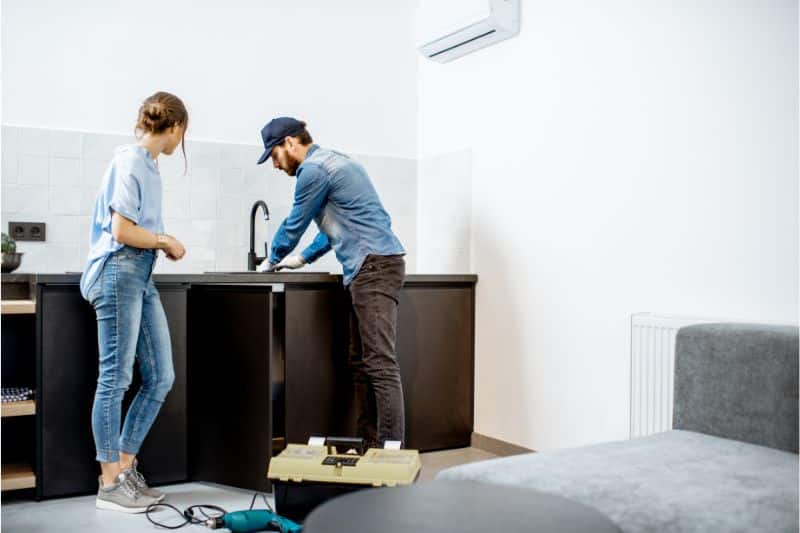
Many jobs in the construction industry are severely understaffed in Australia. As such, the government has taken steps to encourage skilled workers from other countries to migrate to Australia.
Thus, getting a working visa to become a plumber may be possible if you live in another country.
You will need to be able to prove that you have previously completed training for plumber roles in your home country. Experience in plumbing will also be highly valuable for your visa application.
If you think that you are suitably experienced to work as a plumber in Australia, you will need to apply for an Offshore Technical Skills Record, otherwise called an OTSR.
Once you have completed this, you can then gain licensing by applying for a provisional plumbing license.
Finally, you’ll then want to look at undertaking official Australian plumbing accreditation courses. This includes Certificate III in plumbing at minimum.
Or, if you want to complete more complex plumbing jobs as part of your business, you should also consider completing Certificate IV in plumbing.
Final Thoughts
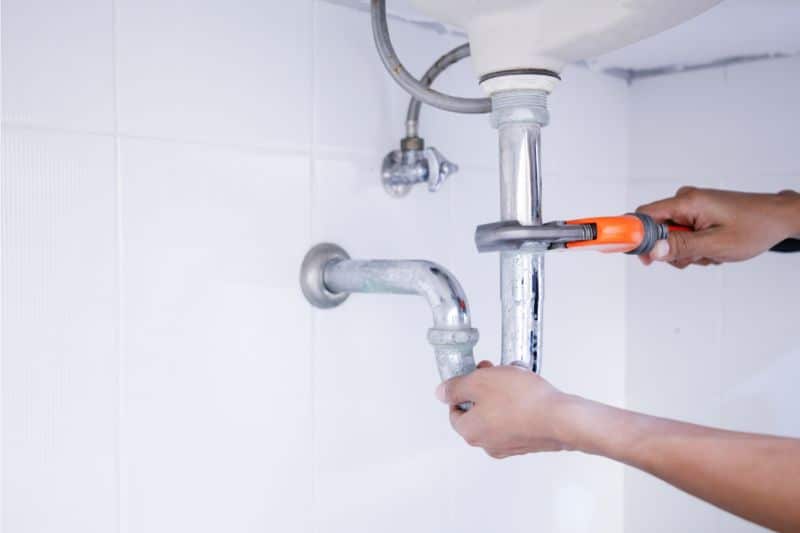
Working as a plumber offers numerous opportunities. However, plumbing systems are irrefutably complex, and becoming a qualified plumber isn’t a two-minute task.
You’ll also need to keep your fitness up at all times as many plumbers work on their hands and knees a lot. It’s a physically demanding job, so understandably, it may not be right for everyone!
Still, if you think now that being a plumber is a good job for you, don’t leave it to chance.
Start your own journey and see how a plumber job might work for you with help from our Fast Labour Hire experts. Contact us today!

